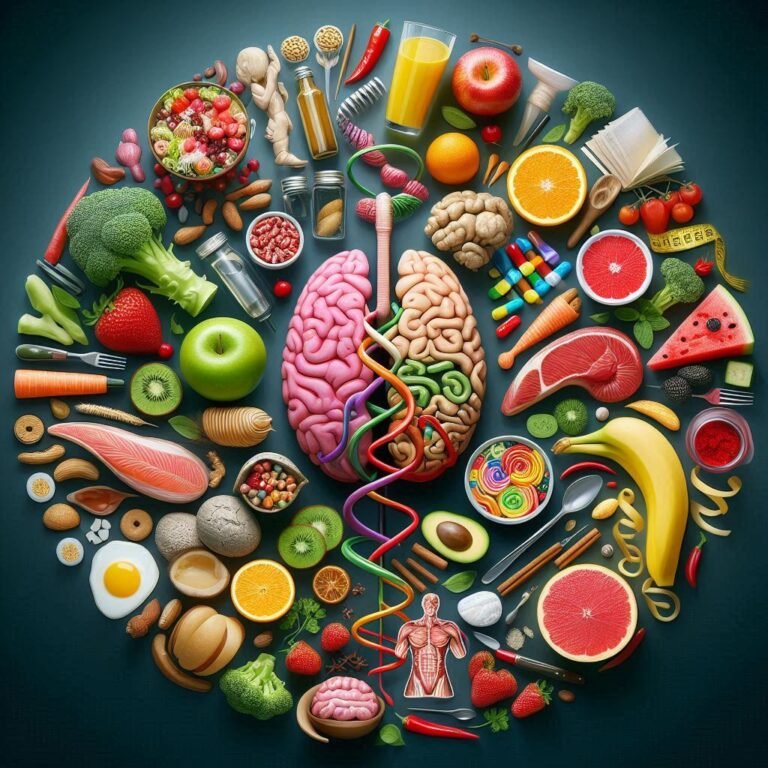The Role of Macroelements in Health
Macroelements, specifically carbohydrates, proteins, and fats, are fundamental components of our daily diet, playing crucial roles in maintaining overall well-being. Each of these macronutrients contributes distinctly to bodily functions and energy regulation. Carbohydrates serve as the body’s primary energy source, fueling physical activity and supporting brain function. They are broken down into glucose, which is utilized immediately for energy or stored for future use. Consuming high-quality carbohydrate sources, such as whole grains, fruits, and vegetables, is essential for sustaining energy levels throughout the day.
On the other hand, proteins are vital for growth, repair, and maintenance of body tissues. They are composed of amino acids, which are the building blocks necessary for creating enzymes, hormones, and antibodies. Adequate protein intake is particularly important for individuals who lead active lifestyles, as it aids in muscle recovery and strength development. The daily recommended intake of protein varies depending on age, sex, and level of activity, but generally falls around 46 grams for adult women and 56 grams for adult men. High-quality protein sources include lean meats, fish, dairy, legumes, and nuts.
Fats are often misunderstood, yet they are essential for various bodily functions, including nutrient absorption and hormone production. Healthy fats, such as those found in avocados, olive oil, and fatty fish, provide energy and support brain health. It is recommended to limit saturated and trans fats, commonly found in processed foods, to reduce the risk of cardiovascular diseases. The balance of these macronutrients is critical—imbalances, whether from excess or deficiency, can lead to health risks, including obesity, malnutrition, and metabolic disorders.
In summary, a well-rounded diet that incorporates appropriate proportions of carbohydrates, proteins, and fats is crucial for maintaining optimal health. Understanding the significance of these macronutrients enables individuals to make informed dietary choices that support their overall well-being.
The Importance of Micronutrients and Their Sources
Micronutrients, which include vitamins and minerals, play a crucial role in maintaining overall health and well-being. These essential nutrients are required in smaller amounts compared to macronutrients, yet their impact on bodily functions is profound. Vitamins such as A, C, D, E, and the B-complex group, alongside essential minerals such as calcium, potassium, and iron, are vital for various physiological functions.
Vitamin A is important for maintaining healthy vision, skin, and immune function. It can be found in foods such as carrots, sweet potatoes, and spinach. Similarly, vitamin C serves as a powerful antioxidant and is crucial for collagen synthesis, supporting skin, cartilage, and bones. Reliable sources of vitamin C include citrus fruits, strawberries, and bell peppers. Vitamin D, often known as the “sunshine vitamin,” supports calcium absorption and plays a role in immune system function. This vitamin can be obtained from sunlight exposure as well as fortified foods and fatty fish.
Vitamin E, an important antioxidant, protects cells from oxidative stress and can be incorporated into the diet through nuts, seeds, and green leafy vegetables. The B-complex vitamins, which include B1 (thiamine), B2 (riboflavin), B3 (niacin), B6, B9 (folate), and B12, are essential for energy production and cellular metabolism, and can be found in whole grains, meat, dairy, and an array of fruits and vegetables.
Minerals like calcium are integral for bone health and muscle function, found abundantly in dairy products, fortified plant-based alternatives, and leafy greens. Potassium helps maintain fluid balance and supports nerve function, available in bananas, potatoes, and avocados. Iron is critical for oxygen transport in the blood, sourced from red meat, legumes, and fortified cereals.
Deficiencies in these micronutrients can lead to serious health consequences, while excessive intake can also pose risks. Therefore, maintaining a varied diet is essential to ensure adequate micronutrient intake. Furthermore, lifestyle factors, including gastrointestinal health and certain medications, can significantly affect the absorption and utilization of these vitamins and minerals, underscoring the need for mindful dietary choices. Understanding and prioritizing micronutrient intake is vital for achieving optimal health and overall well-being.



